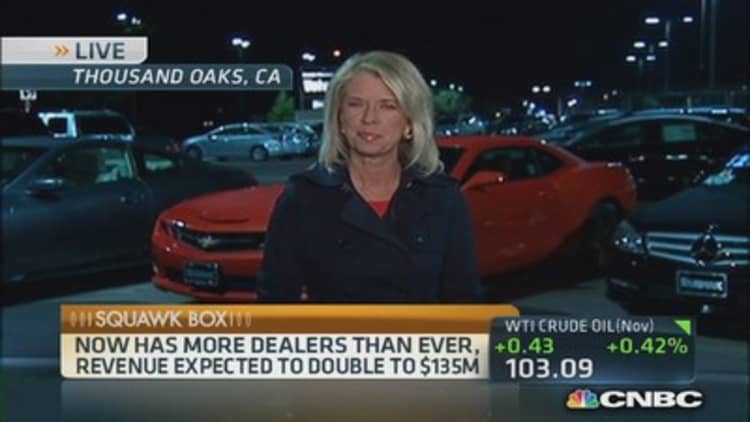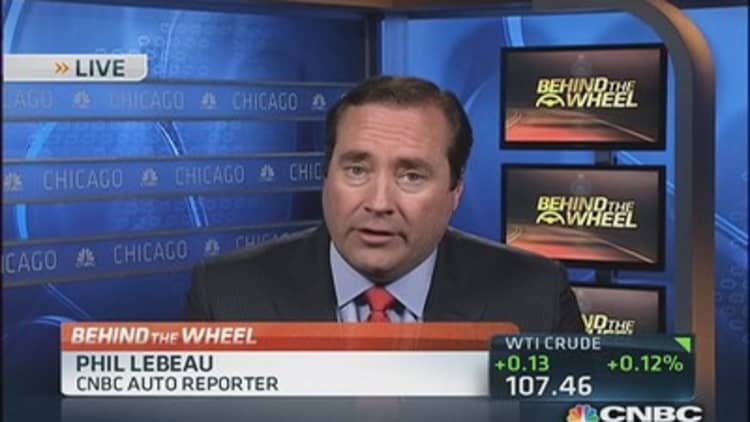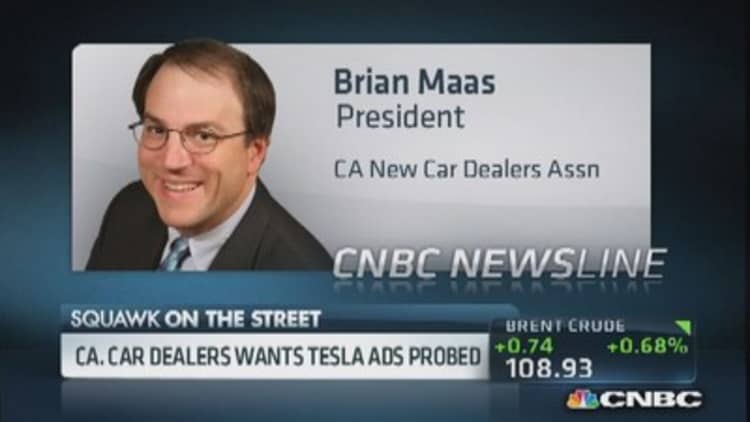Buying a car is like a root canal. Without the anesthesia.
I hate it.
As much as I love the feel and smell of a new vehicle, I cannot abide the process of acquiring one. It is funny business of the highest order.
More on my own experiences in a moment.
Four out of five women take a man with them to go buy a car, according to a 2006 study by Capital One. The Internet has brought about some improvements by better informing all consumers about a car's true value, and DePaul University research suggests women are more aggressive negotiators online than they are in person.

TrueCar.com has tried to tap into those feelings of distrust and discomfort that many women feel with an ad campaign called "A Better Way."
"I talk big, right, and at the dealership I was trying to hold my own," says a TrueCar customer in the commercial. "It was kind of tough." (The company claims the women in the ad are real customers.)
TrueCar provides a car-buying version of real estate comps by giving away data on what other people have paid for a particular make and model. It also gives customers a guaranteed price at one of the 6,500 dealers in its network. The company gets paid a flat $300 fee by the dealer only if the car is sold.
The ad campaign hopes to target an underserved audience. "I felt confident going in on my own and closing the deal on my own," said another customer in the TrueCar commercial. "I don't need to bring a dude with me."
(Read more: Ads on porn sites? This business does it)
Does a woman really need to bring "a dude" in the first place? Come on, ladies! You're young, powerful millennials! You don't need anybody, right? Some marketers and bloggers are complaining that the TrueCar commercial is sexist for portraying women as weak and fearful.
"Apparently women have to research pricing, while men have the magical ability to guess it on the nose like they're securing a spot on 'The Price Is Right,'" wrote David Griner in Adweek.
But is it sexist, or is it true?

Back to my own experience.
I like to think of myself as an aggressive, confident, well-informed and well-paid consumer. Quite a few years back I decided to surprise my husband for an important birthday with a car he had always wanted: a Corvette convertible. Red. Tan interior. Black top.
I went to my local Chevy dealer and learned the car would have to be special ordered. I negotiated a price, put down a deposit and ordered the car. We agreed I would pick it up in six weeks. So far, so good.
A month later I called the salesman to confirm all was on track and was assured that, yes, the car was going to be delivered on time.
A few days before my husband's birthday, I called back to finalize payment and set up a time to get the car. The salesman suddenly notified me that the car had not been manufactured and would not arrive on time. Somehow, somewhere, the paperwork had gotten "lost". He didn't seem to think a short delay would matter, but it mattered a lot to me. I wanted to surprise my husband with the car on his birthday, not a week later.
(Read more: Hey, People Magazine: That is not Sergey Brin's love interest)
Fuming, I went to the dealer and got back my deposit. I frantically searched for another red Corvette in Southern California which I could get my hands on. I found one with a tan interior and a tan top (standard at the time). The dealer was willing to switch out the top for a black one. At this point, the clock was ticking, and I had very little leverage on price. I didn't waste much time haggling, and we settled. The salesman was going to make a nice commission, and I was going to get the car I wanted on time.
I went to the dealer, paid for the car, signed the paperwork and made an appointment with the salesman to return in two days to pick up the Corvette.
Two days later, I showed up ... and the salesman was nowhere to be found. He had taken the day off without notifying anyone of my appointment. Making matters worse, no one knew I had purchased the car. It was still on the lot, ready to be test driven, and dusty.
Now, let me remind you—this was a brand-new Corvette I was buying, not a used Impala. I did not expect to be treated this way.
I remember standing in the car lot that moment, ready to have a heart attack. My face was redder than the sports car I had purchased. Fortunately, I had all the paperwork with me, and another salesman took pity on me and helped (he also saw an opportunity to score at least part of the commission). An hour later, I finally drove off the lot in my new car, furious on a day which should have brought me so much joy.
I never bought another car on my own again.

For the last few car purchases, my husband and I have used the Costco Auto Program or USAA to negotiate a price (TrueCar runs USAA's program). I do not like the haggling part of car buying, and I do not have time to spend five hours on a car lot going through the process. I just want to buy a car for a fair price and get out of there. Don't ignore me, don't waste my time and don't talk down to me.
Which brings me back to the TrueCar campaign.
"We took a very disciplined and studied view of saying, 'What is the issue that women are talking about? What is creating their fear?'" said CEO Scott Painter. "In no way was it meant to demean anyone."
(Read more: NFL bag ban—Women find solutions to banned-purse problem)
Painter is a veteran of several online companies, including CarsDirect.com. He said, "When we started looking at the data, we grew very concerned about the responses we were seeing from women as shoppers, about their fear and intimidation about going into a dealership and buying a car."
If he was looking to build trust with women shoppers with the commercial, it backfired in some quarters.
"I just saw your commercial," wrote Lorna Coatsworth on TrueCar's Facebook page. "That is the most offensive, sexist, and ignorant advertising in the media today."
Deryl Robinson tweeted, "The ads are so sexist…But that doesn't mean they aren't spot on."
Are the ads working? Maybe. "We've seen about a 40 percent lift in female visitors to the site and female buyers," said Painter. "I wouldn't say it's as a result of that campaign, but I think women are certainly one of the first to grab the notion that information is power."
A dealer who did not want to be identified said he is seeing a lot of female buyers using TrueCar, but he isn't sure the new ad campaign has boosted those numbers.
This isn't the first time TrueCar has been under fire. A couple of years ago it was investigated in several states, as some carmakers and dealers complained about the information it made public. Business plunged. The company tinkered with its formula, bounced back and Painter said revenue this year will double to $135 million.
Despite the controversy over this latest ad, the CEO stands by the campaign.
"My initial response is, look at GoDaddy, look at Carl's Jr., look at these companies that really do exploit women," said Painter. "What we offer more than anything is empowerment through information."
—By CNBC's Jane Wells; Follow her on Twitter: @janewells


